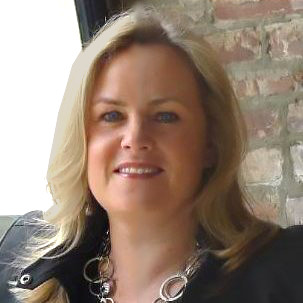
Start Small And Think Big With America Saves Week
2/6/2023
America Saves Week is just around the corner beginning on February 27th. While any time of year is the perfect time to get your finances in order, America Saves Week is a great opportunity to harness the motivation and inspiration of this designated week.
Their motto of “Start Small, Think Big” is a great place to start. Saving for the future can feel overwhelming in the face of credit card debt, rising interest rates, and day-to-day expenses. Retirement or children’s college costs can seem a long way off – until they’re not! So, how do you get focused on your day-to-day finances with an eye to your future financial needs without mentally crashing? You need a plan, and you need to start small.
Budgeting – Know where you stand financially on a monthly basis.
Starting with a budget is the most logical place to start. Knowing what your expenses really are and how they relate to your income is an essential part of organizing your finances. Once you’ve taken stock of your expenses for at least a month you’ll know where you can cut back and how much you’ll have to put toward debt reduction and/or savings.
Emergency Fund – Prepare for the unexpected.
America Saves Week experts recommend focusing on a $500 savings to start as an emergency fund. Having an emergency fund is the very beginning of getting your financial life in control. With an emergency fund, you’re able to cover the unexpected expenses that hit us all without adding to your credit card or other debt.
A fully funded emergency fund will have enough money to cover 3 to 6 months of your expenses. Yikes!! Sounds overwhelming, but remember that this is the goal, and starting by saving $50 a month will help you cover smaller emergencies like a car repair or unexpected dental bill that you may normally apply to your growing credit card balance. Take your budget into consideration to determine how much you can put toward your emergency fund.
Once you have a small financial buffer of $500 in your fund, move on to reducing your debt, but keep adding a small amount to your emergency fund until you have enough to cover a few months without income. If you use some or all of your fund for an unexpected expense, work towards replacing it.
Debt Reduction – Lower your debt load and pay less interest.
You have a budget. You have a small, but growing emergency fund. Let’s tackle that debt. Look at your debts – all of them – and determine which are costing you the most. This will often be the debt with the highest interest rate, perhaps a credit card balance.
Continue to pay all of your monthly installments and bills at the minimum required, however, focus as much of your extra income as you can on your most costly debt. Continue until you’ve paid that debt off completely. Shift your focus to the next debt and pay that one down, and so on.
Use your budget to monitor your spending, so that you’re not adding to your debt load, even while you’re trying to pay it down. As your balance decreases, so too will the amount you pay in interest each month. Try to get to a point where you can pay your credit card down to zero each month. You’ll pay zero interest and be living within your means.
Saving and Investing – An eye on your future.
Once you have a plan to combat your high-interest debt, turn your focus to savings. This may include contributing more to your 401K, a 529 College Fund or other investments, or saving for a home. If your employer has a matching 401K contribution, you should be paying enough to get that matching amount. Don’t leave money on the table. The earlier you start saving for your retirement or children’s college fund, the better you can take advantage of the magic of compound interest.
It seems impossible!! – Start small, think big.
It can be difficult to feel that you are able to cover all the bases with enough savings. Dividing your disposable income between maintaining an emergency fund, paying off debt, and saving for college, retirement, or a home down payment can seem impossible. You don’t have to do it all at once. Work towards a small goal and move on from there. Choose a goal that will get you out of harm’s way financially first. The emergency fund is a perfect example of this. Having even a small fund can allow you to weather a small storm without reaching for your credit card, and that is progress. Aim to keep taking small steps forward. This is a marathon and not a sprint.
If you are completely overwhelmed with your budget or debt, reach out to a certified credit counselor who can help you gain control and confidence to manage your money. When appropriate, a Debt Management Plan may be able to help you pay off your debt in 3 to 5 years. Learn more about credit counseling and how it can help you here.
Lori Stratford is the Digital Marketing Manager at Navicore Solutions. She promotes the reach of Navicore's financial education to the public through social media and blog content.
You can follow Navicore Solutions on Facebook, Twitter, LinkedIn and Pinterest. We'd love to connect with you.
